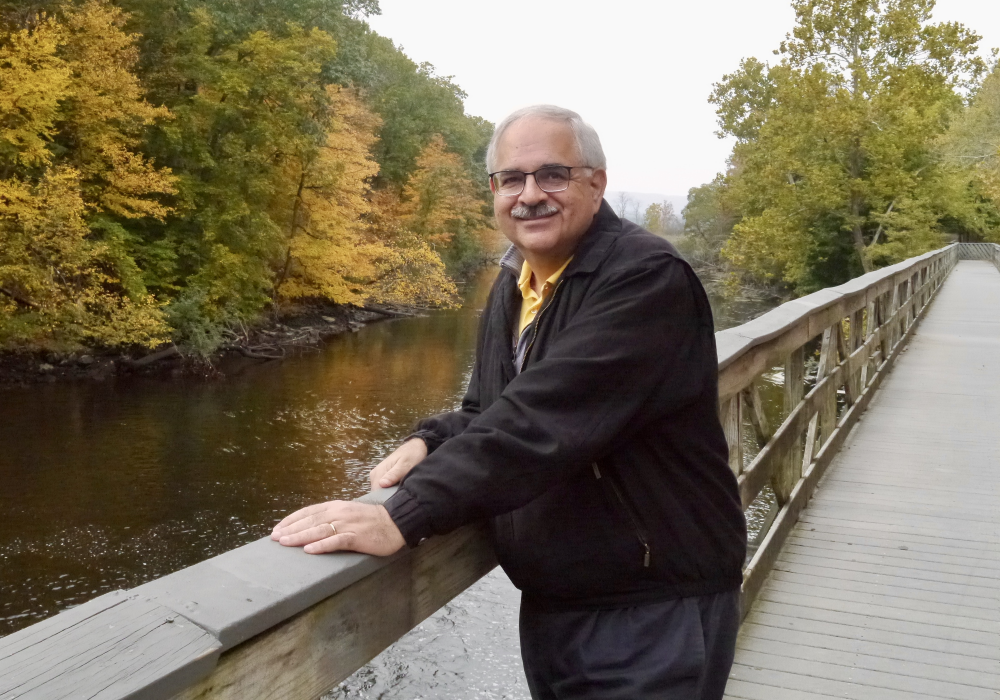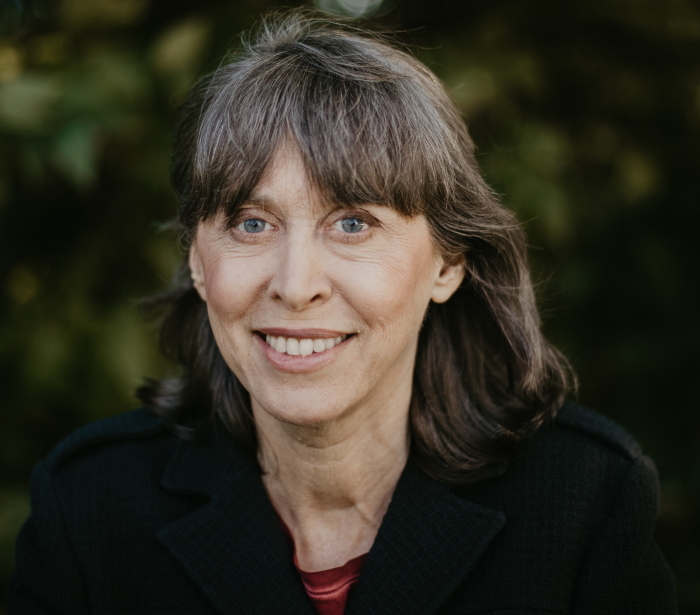Casale faces challenge from council member, write-in
Beacon Mayor Randy Casale may be many things but afraid to speak his mind isn’t one of them. Spend a few minutes in his office — the door’s always open — and it becomes abundantly clear.
Overdevelopment of Beacon? “We’re not developing, we’re re-developing, because urban renewal took a lot of properties off the tax rolls in the 1970s.”
His name on the Republican line on the general election ballot? “The only reason I’m on their ballot is because they don’t have anybody else. I’m a member of the Independence Party.”
His philosophy as mayor? “I want to be the mayor for all of Beacon. I pride myself on returning every phone call and email. I can’t always tell people what they want to hear, but if I can’t do something, I’ll be honest with them.”
Casale would like a third, 4-year term but he must defeat a strong challenger, longtime council member and Democrat Lee Kyriacou, along with Terry Hockler, who is campaigning as a write-in candidate after being defeated by Kyriacou in the primary for the Green Party line.
If elected, Casale would become the city’s second-longest serving mayor behind Clara Lou Gould, who was in office from 1990 to 2007.
A lifelong Beacon resident, Casale, 68, has worked for the city most of his adult life. He was its highway superintendent for more than 20 years before retiring in 2002 and served two terms on the City Council, from 2008 to 2011. He was elected mayor in 2011 and four years ago defeated Ronald Ray, a Democrat, with nearly 70 percent of the vote.
As mayor, Casale will tell you that residential property values have gone up every year since 2014 while tax rates have decreased each of the last three years, with a fourth decrease proposed in next year’s budget. He hired the city’s first full-time, paid fire chief in 2014 and, using federal grant funds, will add four full-time firefighters between this year and next.
Some $60 million has been invested in restoring Beacon’s aging infrastructure in the past eight years while the city’s bond rating and healthy fund balance show fiscal responsibility, he says.
But more than anything else, this election will be about development. Depending on who you ask and what gets counted, between 900 and 1,000 residential units have been approved for construction in Beacon in recent years. Critics say development — punctuated by the three new four-story buildings on Main Street (another application to add a fourth floor to an existing building was approved in August by the Planning Board) — has gone unchecked on Casale’s watch.
And as Beacon builds, some say, the city’s charm and affordability slips away.
The mayor, however, argues that a high percentage — 213 of the new units — will be “affordable,” based on the city’s income-to-rent ratio.
“The word gentrification is out there,” he acknowledges, “but that comes because your city’s doing better. People want to come here. I’m a firm believer that we want our people [who have been here] to stay in Beacon, too, but it’s not easy.”
Without development adding new properties to Beacon’s tax base, he explains, “we wouldn’t be able to sustain the city without raising taxes so high that people would be run out of here.”
When asked about his vision for the next four years, Casale talks about a lot more than development. Small tech businesses, walkability and open space protection — keeping density closer to the city’s center and protecting its outer edges — are all on his list.
If he were selfish, Casale says, “I’d walk out on top and not run for re-election, because the next four years are going to be the toughest.” He’s referring to the possibility that the economy could regress and property assessments could go back down. If either were to happen, city leaders could be faced with hard choices in cutting costs or raising taxes.
But right now, Beacon is thriving, Casale says. Main Street is vibrant like it was half a century ago and, as mayor, he’s in the thick of things. It’s his favorite part of the job.
“I’m a face in the community, and that’s important for the mayor to do,” he says. “And I enjoy what I do. I’ve met so many good people.”
The challenger
Kyriacou, who has served nine terms as a City Council member, says there’s a world of difference between him and the mayor.
The differences, he says, are zoning expertise, planning and vision. Kyriacou, 63, calls himself the council’s “zoning geek,” pointing to his lead role in crafting last year’s revisions of the Fishkill Creek and Main Street zones, as well as the “steep slopes” law, which restricts development on environmentally sensitive land.
The steep slopes law brought the Edgewater development down from 307 apartments to 246, although some residents have pointed out its overall footprint never changed.
“Over-the-top development is ruining a lot of the things that people love about Beacon,” he says, “and threatening our quality of life. There’s a stark difference between the two candidates, and that’s why I’m running.”
He cites the long-discussed restoration of the Tioronda Bridge as another example. “My vision has always been the restoration of a federal historic site in the stewardship of the city. The vision from others has been ‘what a lousy old bridge.’ I see what it can be again as opposed to ‘it’s gone, let’s move on.’”

Kyriacou, who works for a financial network in New York City, moved with his wife to Beacon in 1992. Eager to get involved in their new community, his wife joined local boards and a year later Kyriacou ran for City Council to represent Ward 2.
Main Street’s zoning at the time called for 13-story high-rise buildings on either end with storefront apartments along the length of the street. “It didn’t work,” he recalls.
Kyriacou pivoted later to an at-large seat, where he’s served, with two breaks, since. A run for mayor wasn’t always the plan, he says. “I was on the council for 18 years to try to make changes from the sidelines,” but the mayoral campaign is happening “because we need it right now.”
Kyriacou says zoning will determine what Beacon becomes as it’s developed, and there’s still plenty of space to work with. He sees buildings on Main Street that could expand vertically, plus parcels in the Fishkill Creek zone south of Route 9D that lie undeveloped.
In addition, there’s the former Beacon Correctional Facility and the Metro-North station — sites that either have revitalization plans attached to them (the former) or likely will again in the future (the latter).
“We need a vision for how it will all fit,” he says, “and you need to look comprehensively at what the community’s needs are going to be and plan for that. You need to look at every single parcel before you enact zoning. I spend my time reading [policy] to get every word right.”
Kyriacou also talks about creating a dedicated fund to address parking in Beacon without raising taxes. Businesses that can’t provide adequate parking would contribute to the fund instead.
State legislators would be called on to help address traffic in the heavily congested Route 9D/Interstate 84 corridor, and zoning codes would be revised to require publicly accessible green space as part of new developments in Beacon.
“Development should improve the community, not degrade it,” Kyriacou says. “You don’t get away with it without contributing” to municipal needs such as green space or parking.
The thought leads him again to the now-familiar refrain: zoning.
“You need to be able to say ‘this is what we’d like,’” he explains. “But you have to build it into your zoning to get it.”
Kyriacou says his vision for the next four years is to keep Beacon special. “My vision has always been a diverse community with a sense of community,” he says. “I want both of those.”
The write-in
As a write-in mayoral candidate facing a two-term incumbent and a challenger who’s been on the City Council for 18 years, lifelong Beacon resident Terry Hockler knows she’s got a challenge ahead of her.
But considerable odds or not, she says she’s doing it for the love of her city.
“I love Beacon but I don’t like the direction it’s been heading,” Hockler says, citing affordability and accountability as two of her chief concerns. “It’s a pivotal time for us to have the right elected officials.”

She’d like to see Beacon take on municipal-owned affordable housing projects and would earmark any foreclosures for below-market rate housing. In the accountability column, she proposes electing, rather than appointing, the members of the city’s Planning and Zoning Boards.
Hockler, 57, retired in 2014 after 15 years as a secretary in the state Department of Corrections and Community Supervision and later in the Office of Mental Health. Since then she’s cared for her grandmother, who will turn 100 next month.
She says she decided in the spring of 2018 to run for City Council, but “the Beacon Democrats never returned my phone calls.” Instead, Hockler turned to the Hudson Valley Green Party, which endorsed her run for mayor.
Before this year’s June primary, Kyriacou filed what is known as an “opportunity to ballot” petition for the Green Party line. That meant if more registered Green Party voters (there are only about three dozen in Beacon) wrote in his name (or that of someone else) than voted for Hockler, the write-in name would appear on the Green Party line on the November ballot.
Kyriacou got nine write-in votes in the primary; Hockler received seven.
That knocked Hockler off the ballot despite the Green endorsement, leaving her to run as a write-in. Kyriacou will appear on the Democratic, Working Families and Green party lines on Nov. 5, while Casale, a member of the Independence Party, will also appear on the Republican party line.
Green Party officials cried foul, saying Kyriacou had “stolen” the ballot line. He responded, writing in an email that “the Green Party changed a long-standing policy, without announcement, and endorsed a non-Green registered voter. Beacon Democrats asked to interview for the Green endorsement and never received a response. So, as usual, we filed an opportunity to ballot petition to give voters a choice.”
Hockler says she’s more eager to talk about her ideas for Beacon than to revisit the primary.
The City Council’s recent rezoning efforts — along the Fishkill Creek zone and on Main Street — have “paved the way for reckless development,” she says, opening the door for large franchise hotels, offices and apartment complexes. Hockler believes city residents should have a greater say in revising those policies, which is why she advocates electing planning officials.
She also says she’d like to recreate elements of the Beacon she knew growing up.
“There was housing for people who really needed it,” she recalls. “Retail was booming in Beacon. There were side streets [off-Main] that had shops, and the businesses stayed here for years. Today, even if a business is successful, they can’t pay the high rent.”
She favors legalizing short-term rentals, saying they will help maintain “the charm and ambiance of the city,” and proposes expanded open space protection and a more powerful architectural review board to help developers plan buildings in sync with Beacon’s traditional character.
While she knows her write-in campaign is a long shot, she’s hopeful voters will take time to consider her ideas.
“I’m not going to allow anyone to push me out of the way,” Hockler says. “I’m running my campaign the best I can and I feel like I’ve got a good chance. I’ve lived here all my life and I love the city so much. I want to see what I can do for it.”
